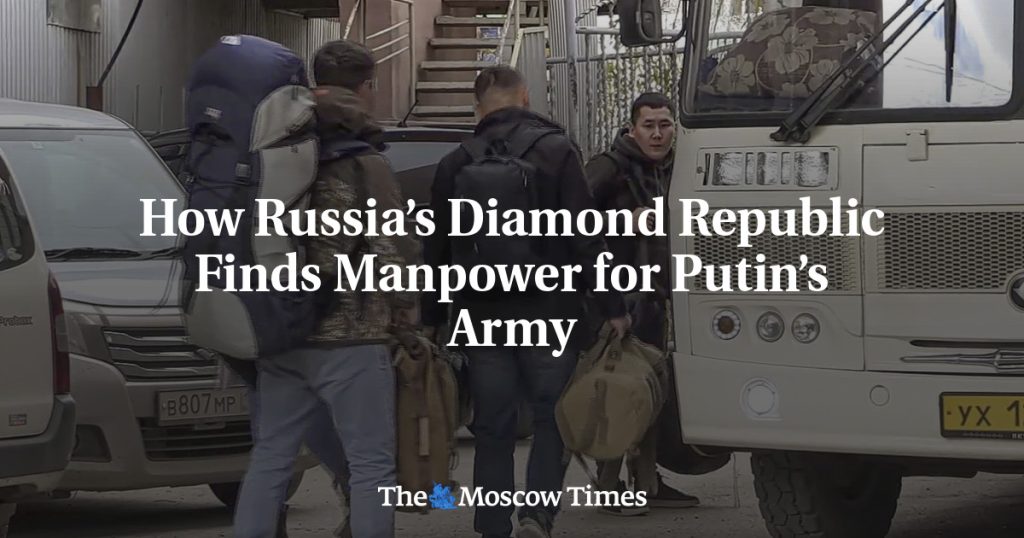In September 2022, Russian President Vladimir Putin ordered a “partial” military mobilization for the war in Ukraine, prompting over 500 women to gather in Yakutsk, protesting the decision. Despite heavy police presence, women blocked off the square and performed a traditional dance, becoming symbols of the ongoing anti-mobilization protests in Russia. While the mobilization was declared over a month later, recruitment efforts continued in Yakutia, with a quota of military volunteers assigned to the region and local officials responsible for meeting these targets.
The mobilization efforts in Yakutia targeted not only the urban centers but also remote Arctic villages where residents rely heavily on hard labor for their livelihoods. Despite being exempt from military service, members of Indigenous peoples in Sakha were also among those mobilized. The Defense Ministry continued its recruitment efforts in the region, with local officials tasked with finding and sending men to the frontlines in Ukraine in fulfillment of Kremlin-imposed quotas.
Recruitment strategies in Yakutia include advertising in local media, targeting workers in major industrial companies, and enlisting unemployed individuals through public employment services. Convicts were also recruited, with some prisoners being sent to the war in Ukraine. Additionally, a “Change Your Life” campaign targeted homeless residents, offering them the opportunity to rehabilitate themselves by joining the military. The government also sought recruits from other regions and countries, offering subsidies to foreign volunteers willing to enlist.
For many Yakutian men, joining the Russian army offers a chance to earn a higher salary than the average in the republic, where poverty levels are high and household debt is a significant issue. Despite promises of financial incentives, soldiers from Sakha reported not receiving their salaries or additional payments, and families of deceased soldiers struggled to obtain compensation. The challenges faced by those recruited from Yakutia highlight the complexities and difficulties of military recruitment in the region amid ongoing conflicts.
The article sheds light on the recruitment strategies employed in Yakutia to enlist men in the Russian army and the motivations behind their decisions to join the frontlines in Ukraine. It highlights the impact of ongoing conflict on families and communities in the region and the challenges faced by both recruits and their loved ones. Despite promises of financial incentives, many soldiers from Yakutia have not received their due compensation, adding to the hardships faced by those involved in the war efforts.
The recruitment efforts in Yakutia encompass various tactics, from advertising campaigns to targeting specific demographics such as workers, convicts, and unemployed individuals. The push to meet Kremlin-imposed quotas has led to the recruitment of men from diverse backgrounds, including Indigenous peoples and foreign volunteers. The article also explores the economic disparities within Yakutia and how enlistment in the military offers a way out of financial challenges for some residents, despite the risks and uncertainties associated with joining the frontlines in Ukraine.


